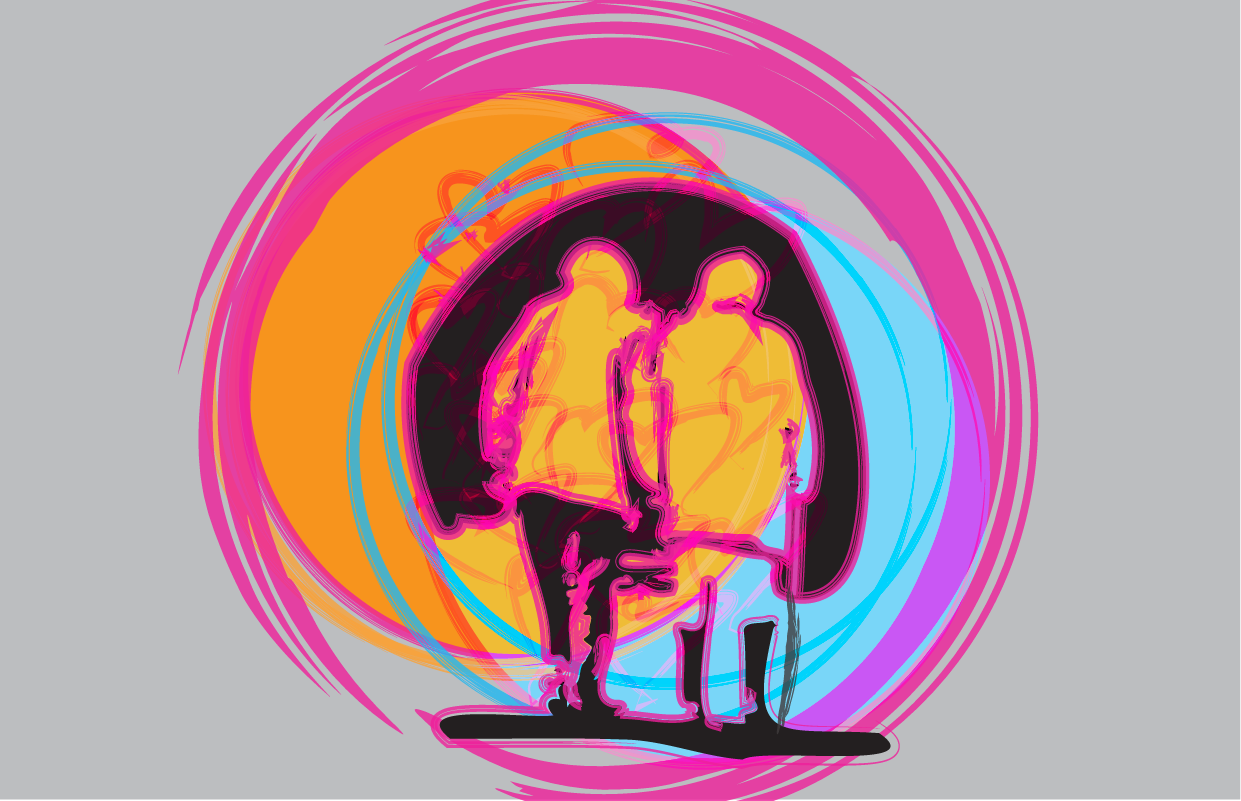In his book The Force of Character, James Hillman writes, ‘The twenty-first century may or may not be greened by ecological awareness, but it will certainly be grayed by its aging population.’ Not only demographically, but biblically as well, attention to global ageing deserves a high priority, as we shall see.
The United Nations demographers summarize their 500-page study of World Population Ageing, 1950-2050 in four points:
- Population ageing is unprecedented, without parallel in the history of humanity, with more and faster to come.
- Population ageing is pervasive, a global phenomenon affecting every man, woman and child, though differently.
- Population ageing is profound, having major consequences and implications for all facets of human life.
- Population ageing is enduring; we will not return to the young populations as before.
People who are over the age of 60 are projected to increase globally from 1 billion in 2020 to 2.1 billion by 2050, and 3.2 billion by 2100. Globally in 2018, those 65+ outnumbered those under 5 years of age, and the trend is projected to continue to 2050, when those 65+ will be 2⅓ times the number of those under 5.
Though these numbers vary from region to region, the same trend is evident everywhere, presenting profound challenges for the infrastructures of any society—economically, medically, educationally, within families, etc. But it also presents vast missional opportunities.
At the same time, the UN’s World Health Organization has declared ageism—discrimination based on one’s age—a global challenge. In fact, they say, ‘Ageism seeps into many institutions and sectors of society including those providing health and social care, in the workplace, media and the legal system.’
Has ageism seeped into the church and mission organizations as well? As Christians, what can we do to obey our biblical mandate to care for the elderly?
Our Biblical Mandate
The Bible has many commandments regarding how we should treat the elderly. For example, the fifth of the Ten Commandments—to honour our parents—is repeated often in the New Testament. This commandment is broadened to include all older persons in 1 Timothy 5:1—treat older men as fathers, older women as mothers. It is also the first commandment with a promise and a warning. The promise is ‘that it may go well with you and that you may have a long life on the earth’ (Eph 6:2), but if disregarded (in the context of widows), ‘he has denied the faith and is worse than an unbeliever’ (1 Tim 5:8).
Though not every widow is elderly, many are. How, then, might that care for widows, enjoined as a model for ‘true religion’ by James (1:27) guide our faithful discipleship to our Lord, Saviour, King, and Good Shepherd, Jesus? Briefly, we find the following biblical components of how God honours widows, which should thus shape our own actions and attitudes toward the elderly:
- God protects widows. He meets their physical, psychological needs. ‘A father to the fatherless, a defender of widows, is God in his holy dwelling’ (Ps 68:5).
- God provides for widows. He meets their material needs. ‘At the end of every three years, bring a tenth of all your produce for that year and lay it up within your gates. Then the Levite (because he has no portion or inheritance among you), the foreigner, the fatherless, and the widow within your gates may come and eat and be satisfied’ (Deut 14:28, 29).
- God includes widows. He especially invites them to feasts, meeting their social, cultural, and spiritual needs. ‘And you shall celebrate the Feast of Weeks to the LORD your God [. . .] and you shall rejoice before the LORD your God in the place He will choose as a dwelling for His Name—you, your sons and daughters, your menservants and maidservants, and the Levite within your gates, as well as the foreigner, the fatherless, and the widows among you’ (Deut 16:10-15).
- God shows special compassion for widows. He attends to their emotional needs. ‘You must not mistreat [take advantage of, exploit, afflict] any widow or orphan. If you do mistreat them, and they cry out to Me in distress, I will surely hear their cry’ (Exod 22:22, 23; cf. Isa 9:17).
- God executes justice for widows. He meets their legal needs, including distributive justice. ‘He executes justice for the [. . .] widow, giving her food and clothing’ (Deut 10:18).
In short, God’s care for the widow, and thus our care as well, is to be wholistic, complete, and integrated. We must counter the ageism of our times and fulfill our biblical mandate to care for the elderly by striving to protect, provide for, include, show special compassion toward, and execute justice for the elderly in our midst.
What Should We Do?
First, we must ponder and pray about the demographic realities and the biblical mandates outlined above.
Care for the elderly means, first of all, to make ourselves available to [our own] experience of becoming old.
Second, we must realize that ‘our first question is not how to go out and help the elderly, but how to allow the elderly to enter into the center of our own lives,’ as Henri Nouwen and Walter Gaffney write in Aging: The Fulfillment of Life. They continue, ‘Care for the elderly means, first of all, to make ourselves available to [our own] experience of becoming old.’
Third, we must investigate our own local and national realities and the resources available. Our personal observations and perhaps a web search may provide much helpful information, yet for many parts of the world it will not. Talk to your church leadership and other Christian agencies in your vicinity.
Fourth, consider the models, resources, and opportunities given at the end of this article. Might you be motivated to do something similar? And for the adventurous, the best blueprint or template for planning integral, wholistic mission for (and to and from) the ageing is no doubt The Madrid International Plan of Action on Ageing, available in six languages. It is as comprehensive as can be, with the exception of the integration of ‘the spiritual’, which is our special responsibility as Christians.
Given the national, international, academic, and corporate attention given to ageing now for decades, together with the clear biblical and missional mandates, one wonders why there has not been more missional care given to this global trend, hidden in plain sight.
Shall we together, in ‘the unity of Spirit and the bond of peace’, be the ones to change this?
ADDITIONAL RESOURCES
Case Studies and Resources for Elderly Ministry
Three Global Case Studies
The following three case studies provide a sample of how some ministries around the world are caring for the elderly.
1) Reach One Touch One Ministries – Mukono, Uganda
In 2002 Ugandan Kenneth Mugayehwenkyi was moved by the plight of an elderly grandmother. Government assistance for the elderly, such as social security, pensions, insurance, medical care, disability and other entitlement programs do not exist in Uganda. Thus, senior adults are dependent on the next generation to help meet their basic needs. However, in the aftermath of the HIV/AIDS crisis and numerous wars, many elder adults find themselves caring for their grandchildren without the health and resources needed for either generation to thrive.
Kenneth launched Reach One Touch One Ministries (ROTOM) in October of 2003 to relieve the suffering of seniors in Uganda. ROTOM has Seniors’ Fellowships in more than 56 villages. They meet twice a month for a time of fellowship, where the grandmas and grandpas get to sing, dance, learn about Jesus, encourage each other, and share a big nutritious meal.
ROTOM also provides:
- Health and medical services such as geriatric care, home visits, medicine delivery, health screenings, and purchasing of equipment for ROTOM Health Centers.
- Home safety and security like repairs to existing homes, building new housing if needed, providing sheltered kitchens, and offering sustainable solar lighting for seniors.
- Food and income security through livestock and farming materials, with education on how best to manage these resources. Nutrition education, income generation training, and other skills training are also provided.
- The Water, Sanitation, and Hygiene (WASH) fund provides seniors with water storage systems for safe drinking water, builds sturdy and safe latrines, and offers personal hygiene education to seniors as needed.
- The Dependent Care Fund offers assistance for dependent children through financial assistance for health care, education, nutrition, emotional and social support, as well as leadership and skills development.
2) Doukonia – Sevilla, Spain
Doukonia is a non-profit, non-governmental organization, national in scope, which was founded in 2002 with the aim of serving the sector of the Third Age (those 60-74 years old) with primary, psychological, social, and spiritual care needs. Doukonia provides programs of various sorts:
- Health and wellness programs to improve health and have a better quality of life for both the elderly and those around them.
- AireDvida, a home for the elderly near the city of Seville so residents do not suffer being uprooted from their families, friends, and the place where they have lived most of their lives.
- Elder’s Day, recognizing the importance of the elderly on the International Day of the Elderly celebrated on October 1.
- Doukonia Fair, a fair like those of the elder’s past years, ranging from typical foods, dances, and contests, to a finale with churros and chocolate.
- Spring Retreat, a weekend in the Sierra de Sevilla in the middle of nature for a time of relaxation, friendship, and many other activities.
- Cultural Trips held on the weekends at an affordable price for the elderly, where they can get to know part of the Spanish and Portuguese geography.
- Charity Shop for second-hand items with the aim of recycling used items and raising funds for the ministry.
A sign of what can be done by a few, and that a few cannot sustain such ministries, after 23 years Doukonia closes in 2023.
3) 105 Gibson Centre – Greater Toronto Area, Canada
105 Gibson Centre started in 2010 when the Toronto Christian Community Church purchased the 47,000-square-foot warehouse next door. After much prayer over a period of time, the church leaders received a vision from God to build a Christian faith-based community care centre, and make it a platform for holistic outreach and social concern.
The programs include fitness, literacy, and art programs for kids, youth, young adults, and adults, as well as programs for families. Programs for older adults (age 55+) include literacy, the use of technology and literacy programs in Chinese; wellness, such as Tai Chi, dance classes (silver ballerina), brain strengthening training, full body stretching exercises, and Chinese medicine talks; art, such as drawing (Chinese landscape painting), singing, and Chinese calligraphy; spirituality, including life story sharing; cultural festival celebration and opportunities for community volunteering.
105 Gibson also provides community care services like a food bank, tax clinic, and thrift store, and health services like counseling, massage therapy, tele rehab, and a medical consultation clinic.
Resources by Region (in English)
- North America
- Africa
- China
- India
- Latin America

